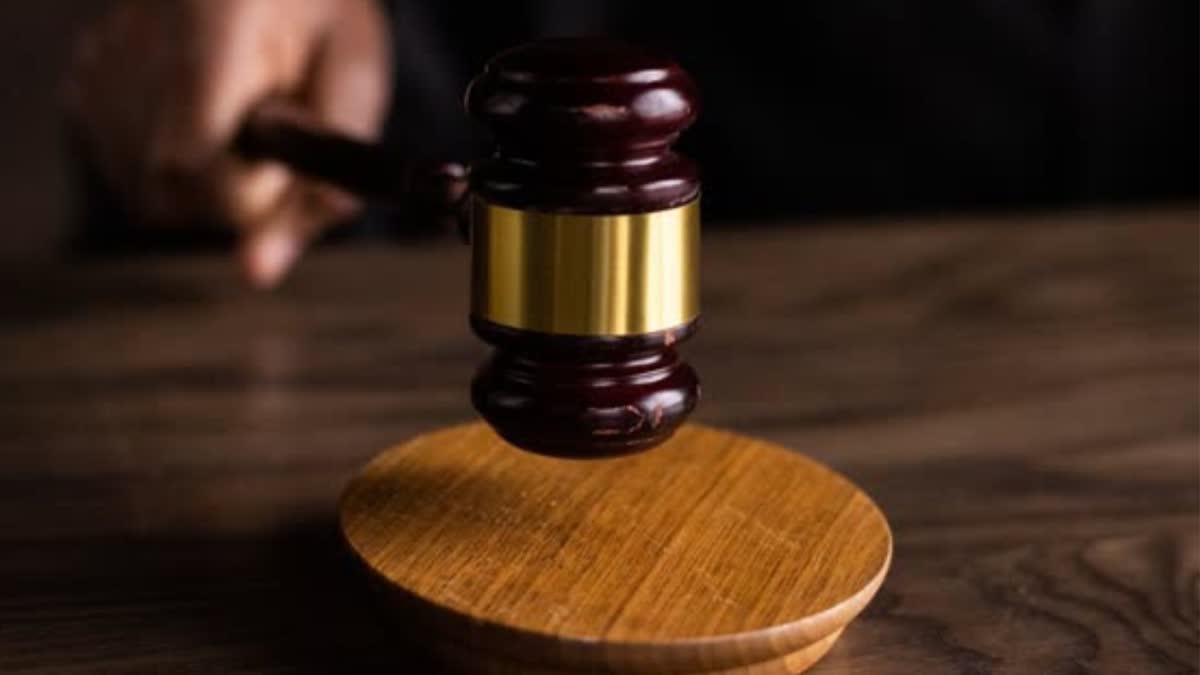New Delhi : On the first day of hearing on Delhi chief minister Arvind Kejriwal’s plea challenging his arrest by Enforcement Directorate in the Delhi liquor policy case, the Supreme Court posed three queries to his counsel: did Kejriwal move a bail application before the trial court; ED says he ignored its notices; and, Kejriwal says under Section 50 of PMLA, his statement was not recorded, but he never appeared for recording of Section 50 statement.
Senior advocate A M Singhvi, representing Kejriwal, contended before a bench comprising justices Sanjiv Khanna and Dipankar Datta that his client was arrested consequent to model code of conduct (MCC) being put in place, even though there was no "reason to believe" or "new" material with ED to take the action against him.
At the outset, Justice Khanna told Singhvi, “I am asking you factually, you did not move any application for bail (before the trial court)…I am not on, why you did not move, why you didn’t but as a matter of fact…..”. Singhvi said Kejriwal has not filed for bail and stressed that his arrest was illegal. Singhvi said that the arrest was illegal for violating Section 19 of the Prevention of Money Laundering Act (PMLA) and hence the writ petition, which challenges his arrest, deals with the wider import.
Singhvi said he is pressing for interim release of Kejriwal. He said there were enormous documents prior to his arrest but they did not connect Kejriwal with the alleged Delhi excise policy case, and also charge sheets (including supplementary) filed by CBI did not name him.
Singhvi the statement which formed the basis for the arrest of Kejriwal was recorded in July last year and they arrested him in March, 2024. “Arrested in March after the model code of conduct has come and he is put behind the bar…it is as if... arguing for immunity, who is arguing for immunity. Does the chief minister have less rights (than a common man) under sections 45 and 19 (of PMLA)”, argued Singhvi.
Singhvi stressed that Kejriwal was merely arrested on mere suspicion and no document (including FIRs, chargesheets, supplementary chargesheets, prosecution complaints, etc.) implicates him as an accused. He added that Kejriwal was not named in the CBI’s FIR or in the ED’s Enforcement Case Information Report (ECIR).
It was argued before the court that there was no material to arrest Kejriwal and non-cooperation can never be a ground for arrest.
The bench noted that Singhvi is saying that his client is not chargesheeted in any of matter, though FIR was registered on August 17, 2022 and the ECIR was registered on August 22, 2022 and also that most of the statements did not name Kejriwal, and statements between November 2022, and April 2023, said nothing against Kejriwal.
It was argued before the court that these statements are either one year old or 9 months old, and there are no new statements. Singhvi said that the same statement on which I am arrested was shown to the court in a different combination in the Manish Sisodia’s case. Sisodia is currently lodged in jail in the Delhi excise policy case.
Singhvi said there are a total five statements against Kejriwal, starting from December 2022 and ending in July 2023 and the ED arrested him in March 2024. “They are not arresting a hardened criminal or a terrorist….what is the imminence? What is the reason to believe and necessity for arrest”, said Singhvi.
“So, were you letting a guilty chief minister roam free from December 2022, through April 2023, through July 2023….eight months”, said Singhvi, adding that there were no new statements.
Justice Khanna said, “They (ED) counters. They say 9 notices were issued and you avoided them…”. Singhvi said today, they can’t arrest him by saying that the ED sent notices "but you never came….”.
Justice Khanna said, “Dr Singhvi, aren't you contradicting yourself, one you say Section 50 (statement) is not recorded, but then you do not appear for recording of Section 50. Then are you not contradicting?” Singhvi replied in negative.
Singhvi said that the absence of a Section 50 statement is not a ground to assume that a person is guilty and added that the other material also does not establish my guilt.
“If you do not go, you can that by itself may not be a ground to hold you guilty, but you cannot say because my statement is not recorded under Section 50, please do not hold me guilty”, said Justice Khanna. The apex court will continue to hear the matter tomorrow.
Read More



